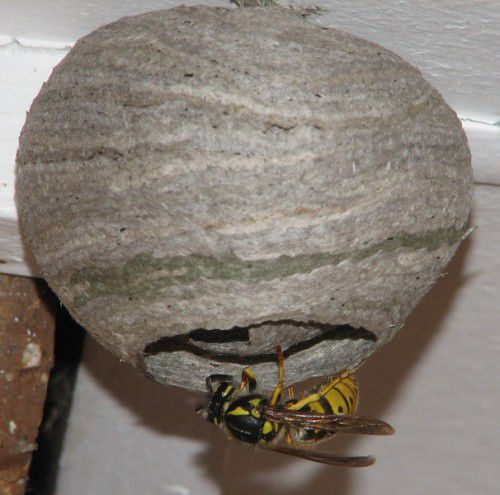THE ACT Government is reminding residents to remain on the lookout for European wasps in the ACT after a number of nests have been found in houses, gardens and parks in Canberra.
“The European wasp is making its unwelcome presence known lately by infiltrating people’s homes and gardens as well as our parks and wilderness areas in the ACT,” wasp expert for Territory and Municipal Services, Dr Philip Spradbery, said.
“European wasps can be extremely dangerous. In Australia wasps have been responsible for attacking and killing horses, and a rider lost her thumb when her horse bolted after being startled by wasps.
“While no-one has been killed by European wasps in Australia, a man on New Zealand’s south island was stung hundreds of times and killed a few years ago. He disturbed a nest while chopping firewood.
“European Wasp nests, which can be as big as a basketball, can contain many thousands of adult wasps, all capable of inflicting multiple, painful stings on anyone who confronts them.
“They also compete for food and drink when we eat outdoors. This creates the added danger of a sting in the mouth, which can have dire consequences, due to swelling of the throat. European wasps are also attracted to markets and outdoor cafes where food is on display and can cause chaos for al fresco diners.
“Nests are rarely seen because they are built underground or in house structures like wall cavity and roof spaces. The signs of a wasp nest are the continuous flow of the striking black and yellow wasps flying in and out of the entrance hole to where the nest is hidden. Last year nearly 60 per cent of nests reported in suburban Canberra were built in the cavity walls and roof spaces of houses.
“In Canberra, the first nest of the invasive European wasp, Vespula germanica, was discovered in a Pialligo orchard in 1984. During the past 30 years it has spread to all suburban areas of the ACT and also Namadgi National Park and Tidbinbilla Nature Reserve. The wasps are also widespread in the Snowy Mountains.
“Nests can be very well protected and also very hard to find. For example, underground nests frequently survive bush fires and hungry wasps can be the only living creatures confronting firefighters when they attempt to mop up after fire.”
If a nest is found, contact the European Wasp Hotline on 6162 1914 for advice. If you are stung, apply an ice pack to the area. If you experience difficulty breathing after being stung you may be having a severe allergic reaction and should seek medical attention.
Who can be trusted?
In a world of spin and confusion, there’s never been a more important time to support independent journalism in Canberra.
If you trust our work online and want to enforce the power of independent voices, I invite you to make a small contribution.
Every dollar of support is invested back into our journalism to help keep citynews.com.au strong and free.
Thank you,
Ian Meikle, editor





Leave a Reply